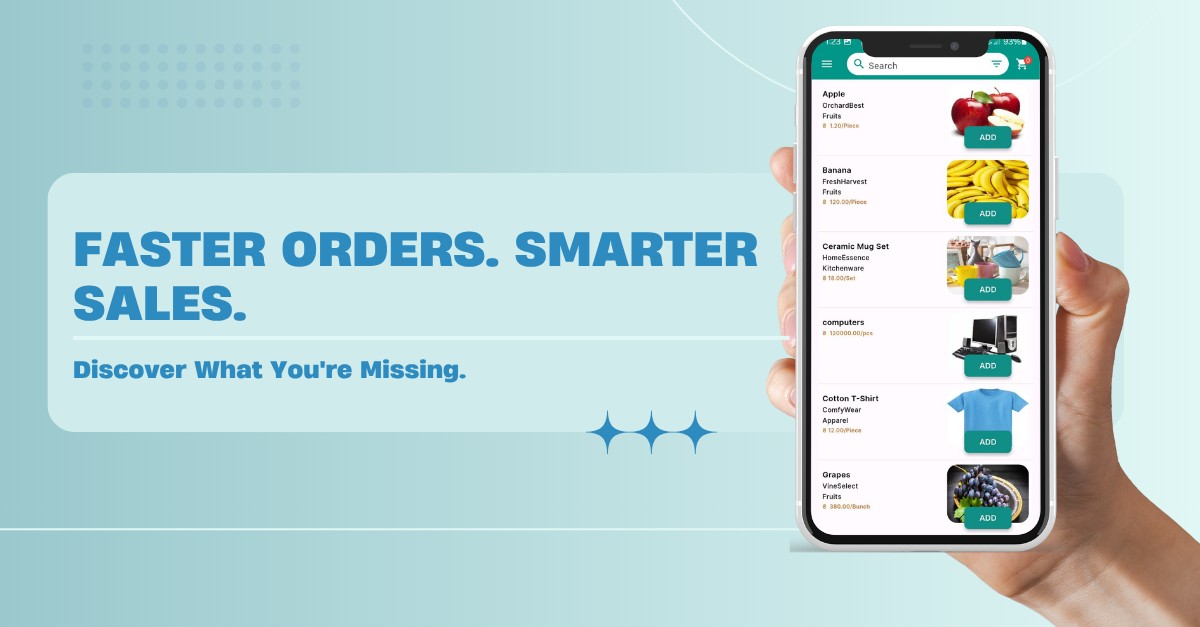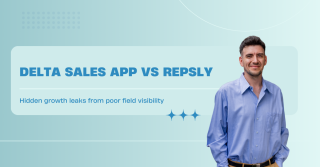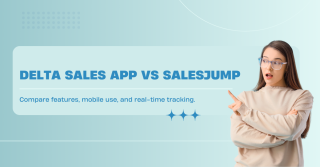B2B Customer Order App vs Traditional Order Methods: What Your Business Is Missing

In today’s fast-paced B2B landscape, sticking to traditional order-taking methods could be holding your business back. Phone calls, emails, and manual order entries once formed the backbone of distributor-retailer transactions, but in the digital age, these processes create bottlenecks and inefficiencies that your competitors are already solving with modern solutions.Enter the B2B Customer Order App, a game-changing platform transforming how businesses manage orders, enhance relationships, and accelerate growth.
Let’s explore how the two methods stack up and what your business could be missing out on.
The Traditional Order-Taking Process: A System of Delays and Disconnects
In the traditional process, order placement is a slow and error-prone process. Retailers rely on outdated communication methods and manual systems that often led to confusion, inefficiencies, and missed opportunities. Here’s how orders are typically handled:
-
Phone calls during working hours
-
Emails prone to miscommunication
-
Manual paperwork and spreadsheets
-
Visits from sales reps
While these methods were once standard, they come with significant drawbacks in today’s business environment:
-
Limited ordering hours:Orders can only be placed during business hours, leaving retailers stranded after hours or during weekends.
-
Miscommunication risks:Errors in product names, quantities, or prices are common when relayed over the phone or jotted down manually.
-
Delayed fulfillment:Manual data entry delays order processing, impacting delivery timelines.
-
Zero order visibility:Retailers have little to no insight into order status, delivery schedules, or stock availability.
The result? Frustrated retailers, overworked sales reps, and missed revenue opportunities.
The Rise of B2B Customer Order Apps: Streamlining the Entire Process
Adopting a B2B Customer Order App transforms how distributors and retailers collaborate. These mobile-first platforms digitize the entire order journey from browsing products to receiving updates on order status.
Here’s how they elevate your operations:
-
24/7 Ordering Access
Retailers can place orders at their convenience whether during business hours or on weekends ensuring no sales opportunity is lost. -
Real-Time Product Information
Retailers get live updates on pricing, inventory levels, and promotional offers eliminating guesswork and order disputes. -
Faster Order Processing
Orders are automatically synced to your backend system, minimizing manual entry, speeding up fulfillment, and reducing errors. -
Order Tracking & Notifications
Retailers can view real-time status updates, from order confirmation to delivery dispatch boosting transparency and trust. -
Improved Sales Productivity
Sales reps are freed from repetitive data entry and can focus on building strategic relationships, upselling, and cross-selling. -
Data-Driven Insights
You gain access to detailed analytics on order frequency, high-performing products, and retailer behavior enabling smarter decisions.
Comparing B2B Order Apps vs Traditional Order Methods
|
Feature |
Traditional Methods |
B2B Customer Order App |
|
Order Timing |
Limited to working hours |
24/7 access |
|
Communication |
Calls, messages, manual notes |
Real-time, Digital, Trackable |
|
Error Rates |
High Due to manual entry |
Significantly reduced |
|
Inventory Visibility |
Rarely available |
Live Stock Update |
|
Speed of Processing |
Delayed by manual steps |
Instant Order sync |
What Your Business Is Missing Without a B2B Customer Order App
If you’re still managing orders manually, here’s what you’re potentially losing:
-
Lost Sales During Off-Hours: Without 24/7 ordering, retailers may delay or forget to place orders costing you revenue.
-
Customer Frustration: Errors in order fulfillment and lack of updates can damage your brand image.
-
Wasted Admin Time: Sales teams waste hours entering data, following up on deliveries, and handling basic inquiries.
-
No Visibility: You lack real-time insight into order statuses, bottlenecks, or retailer preferences.
-
Sales Team Underutilization: Instead of being consultative sellers, reps act as order takers.
In contrast, businesses that adopt digital order management app report:
-
Higher order accuracy
-
20–30% faster order cycle time
-
Improved reordering frequency from retailers
-
Stronger, trust-based distributor-retailer relationships
How B2B Customer Order Apps Support Distributor-Retailer Relationships
Trust and transparency are key to strong distributor-retailer relationships. A mobile order app supports this in several ways:
-
Self-Service Convenience: Retailers can reorder without calling or waiting offering them autonomy and control.
-
Digital Catalog Access: Reps no longer need to carry bulky brochures. Retailers can view product catalogs with rich media and search options.
-
Promotions & Deals: Push promotional offers directly through the app to drive upsells.
-
Consistent Communication: Automated messages, reminders, and updates keep everyone on the same page.
-
Feedback Loops: Apps can also collect feedback, complaints, or suggestions directly from retailers.
This strengthens loyalty, builds trust, and drives repeat business.
Who’s Winning with B2B Order Apps?
Across industries like FMCG, pharmaceuticals, wholesale, and food & beverage, many companies are already reaping the benefits of digital order management. By replacing outdated, manual systems with intuitive B2B ordering apps, they’re unlocking new levels of efficiency, visibility, and control. Here's how different sectors are winning:
-
FMCG Companies use B2B ordering systems to ensure timely replenishment across thousands of small retailers, even in remote areas.
-
Pharmaceutical Distributors reduce stockouts and comply with expiry tracking via real-time inventory visibility.
-
Wholesale Suppliers manage large catalogs efficiently, allowing clients to filter by category, price, or availability.
-
Food & Beverage Brands use apps to monitor order frequency and incentivize high-performing retailers.
In all these cases, companies report increased operational efficiency, faster go-to-market strategies, and a competitive edge.
Ready to Bridge the Gap?
The modern B2B buying experience should mirror the ease of B2C platforms like Amazon fast, mobile, transparent, and always on. A B2B Customer Order App is no longer a luxury, it's a competitive necessity.
By making the shift, your business can:
-
Streamline distributor-retailer communication
-
Enable mobile-first, 24/7 order placements
-
Improve order accuracy and fulfillment speed
-
Gain valuable insights into customer behavior
-
Unlock new revenue opportunities
Final Thoughts
In the battle of B2B Customer Order App vs Traditional Order Methods, the winner is clear. Businesses that embrace digital order management not only gain efficiency but also deliver better customer experiences, empower their sales teams, and future-proof their operations.
Don’t wait until inefficiencies cost you your competitive edge. If you’re ready to explore a smarter way of handling orders, get in touch with us and discover how a modern B2B ordering system can transform your growth.









